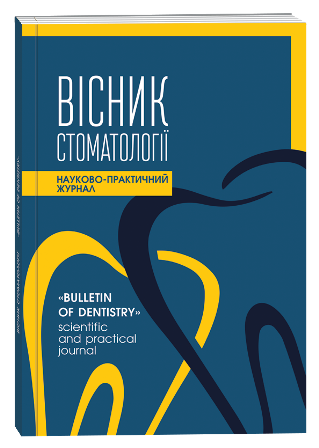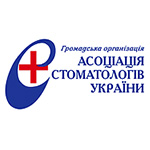ULTRASTRUCTURAL CHANGES IN BONE TISSUE AND PERIOSTEUM AFTER GUNSHOT AND NON-GUNSHOT JAW INJURIES IN RATS IN THE EXPERIMENT
DOI:
https://doi.org/10.35220/2078-8916-2024-52-2.7Keywords:
gunshot wounds, maxillofacial area, experimental study, electron microscopy.Abstract
In order to study the ultrastructural changes in the skin, oral mucosa and bone tissue, the following tasks were set: to study the ultrastructure of bone tissue changes after gunshot injury to the jaws in a rat experiment; to study the ultrastructure of bone tissue changes after non-gunshot damage to the jaws in an experiment on rats. Material and methods of the study: The work was performed on 7 adult Wistar rats, which were divided into 3 groups: Group I ‒ control, intact animal; Group II ‒ group of modeling mechanical damage in a rat; Group III ‒ modeling gunshot damage. For electron microscopic examination, fragments of bone and soft tissue of the rat jaw were fixed in a 2.5% solution of glutaraldehyde in phosphate buffer at a pH of 7.4, followed by additional fixation with 1% solution of osmic acid at the same pH of the buffer solution. The samples were then dehydrated in alcohols of increasing concentration. The material was impregnated and encapsulated in a mixture of Epon-Araldite epoxies. Subsequently, ultrathin sections were contrasted using the Reynolds method. The study found that on the 7th day after a gunshot wound to the bone, which causes significant damage to the bone and periosteum structures, there is a more intense inflammation that covers large areas of tissue than after a mechanical fracture. In these areas, swelling of the connective tissue skeleton with destruction of the BF, localization of a small number of leukocytes and erythrocytes and accumulation of a large number of cells of histiogenic origin is determined, i.e., signs of inflammation with the germination of single microvessels in the area of injury. At the same time, active reparative processes involving connective tissue cells are underway in this area, which are aimed at collagen synthesis and restoration of connective tissue function, tissue architecture, or a rough scar. In the fracture zone after mechanical damage, mast cells, macrophages and a slight edema of the basic connective tissue substance are observed. After a fracture of intact bone, single molded elements and macrophages with activation of individual osteoblasts are detected.
References
Nguyen T.N., Meek G., Breeze J., Masouros S.D. Gelatine Backing Affects the Performance of Single-Layer Ballistic-Resistant Materials Against Blast Fragments. Front Bioeng Biotechnol. 2020. №8. Р.744. doi:10.3389/fbioe.2020.00744
Velasco J.M., Valderama M.T., Margulieux K., et al. Comparison of Carbapenem-Resistant Microbial Pathogens in Combat and Non-combat Wounds of Military and Civilian Patients Seen at a Tertiary Military Hospital, Philippines (2013-2017). Mil Med. 2020. №185(1-2). Р.e197-e202. doi:10.1093/milmed/usz148
Kim T. K. T test as a parametric statistic. Korean J Anesthesiol. 2015. №68(6). Р. 540-546.
Valentine K.P., Viacheslav K.M. Bacterial flora of combat wounds from eastern Ukraine and time-specified changes of bacterial recovery during treatment in Ukrainian military hospital. BMC Res Notes. 2017. №10(1). Р. 152. doi:10.1186/s13104-017-2481-4
Бойова хірургічна травма. Воєнно-польова хірургія. Я. Л. / Заруцький та ін. ; за ред. Я. Л. Заруцький, В. Я. Білий. Київ: Фенікс, 2018. С. 45-59.
Судово-медична експертиза об’єктів при вогнепальній травмі: монографія (видання доповнене) / В.Д. Мішалов ат ін. Київ, 2019. 303 с.
Щербак В. В., Толмачов О. О., Кундиус О. В., Абдурасулов А. А. Методологія проведення балістичного експерименту на біологічних імітаторах тіла людини. Крімінальний вісник. 2015. № 24(2). С. 131-132.
Гулюк А.Г. Експериментальна модель вогнепальних пошкоджень щелеп у щурів. Свідоцтво про реєстрацію авторського права на твір № 119858. 19.06.2023.
Reуnoldes E. S. The use of lead citrate at higt pH an electronopaque stain in electron microscopy. I. of CellBiol. 1963. №17. Р. 208-212.









